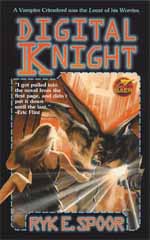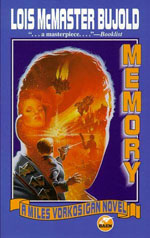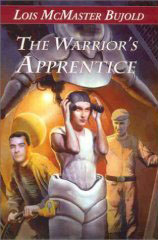Yesterday evening I was talking to my oldest friend in the entire world about the general discontent and dissatisfaction we were feeling with our lives. I sit here, at twenty-five, and I wonder where my life took a wrong turn. And, basically, I know where my life took a wrong turn: Sophomore year in high school. That’s the year where the utter mediocrity of the education system broke my soul. After an illness which took me out of school for the better part of a month, I returned to discover that I could, in fact, catch up on an entire month’s worth of school work at A+ levels in two days. Two days.
Up to that point I had always faced school as a challenge. A competition which could be won. And, as a result, I was an over-achiever. Just a year earlier I had stayed up for 48 hours straight to complete an 80-page biography of Shakespeare… for an assignment which only required a 5-page research paper.
But, ultimately, the lesson I ended up carrying away from school was this: I can put off any assignment to the last minute, crank it out in a couple of hours, and expect marvelous success. I can slack off to an astonishing degree and still succeed, because I am so gosh-darn smart and my teachers love me for it.
These are piss-poor lessons to learn, and I wish I never had. Because once I became actively conscious of the charade I had been playing, the new challenge became, “Just how far can I push before anybody holds me to account?” Well, the first and easiest answer: If I miss two months worth of school, they’ll knock down my grades from their former highs (even if I’ve completed all the work). But that was just playing games with the backwards absenteeism policies of a bureaucratic school system. So now I focused on procrastination and putting the least amount of work into assignments that I could manage while still pulling down A+ grades.
The worst part is that, actively conscious of the charade as I now was, I wasn’t actively conscious of the new games I was playing. Not for awhile, any way. And I learned a very bad life lesson.
I lack discipline.
I don’t meet the goals I set for myself. I don’t achieve the things I want to achieve. I don’t have the life I want to have.
And I’ve known that for awhile now, and I still can’t fix it.
That’s the conversation I had this evening. And then I got off the phone, logged into my e-mail account, and discovered that Kris Okins had died. She was a friend and classmate when I attended the Minnesota Arts High School. We hadn’t talked since we graduated, so I didn’t know that in the years since she’d moved to Portland, Oregon. That’s where she was hit by a truck while riding her bike.
The e-mail that delivered the news to me included a news article, which read in part: “When Melissa encouraged her to get back to her career as a graphic artist, Kristine shrugged it off. She had had a taste of sitting all day in front of a computer screen, she said. Right now, she loved her life, loved her freedom and wanted to enjoy it a little while longer. She had a whole lifetime ahead of her to spend in front of that screen.”
Thus, we have a moment of personal crisis, a moment of tragedy, and a moment of synchronicity. (One might even say serendipity, since a picture of John Cusack just popped up in the background as I type this.)
The lesson I should be learning here is simple: Life is short. Live it. Don’t Waste it.
But the thing which frightens me is that, even knowing this, I still won’t have learned it. Twenty-five will become thirty, thirty will become thirty-five… and I’ll still be sitting here. Living the hollow shell of a the life I could have had.
My dreams shall be the stuff of nightmares…



